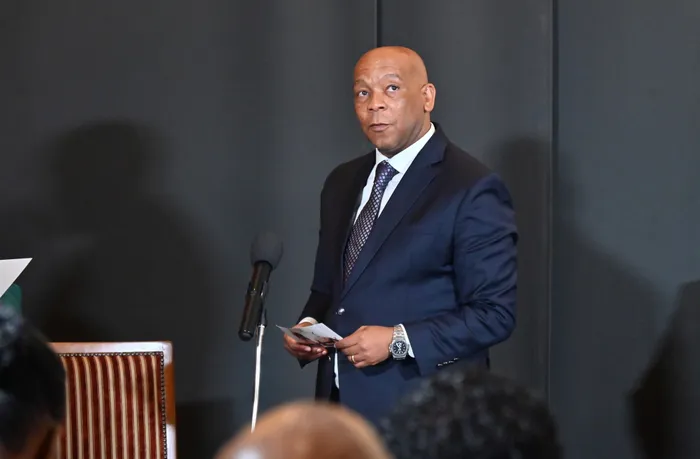My tips for SA krag minister

ELECTRICITY OU: Kgosientsho Ramokgopa. Picture: Ayanda Ndamane / African News Agency (ANA)
Dear Mr Minister of Electricity,
It has been a few weeks since you were handed this warme hot potato of a portfolio.
Like all of us, I expect you are also eagerly awaiting former Eskom boss Andre de Ruyter’s appearance before Parliament’s standing committee on public accounts on Wednesday. I expect he will shed even more light on the allegations he made on TV before his final departure.
Irrespective of what he will say, there are still some harsh realities for you to deal with at the power utility. While those issues are related to the necessary practicalities needed to keep the lights on, this letter aims to give you some grassroots perspectives that you may be unaware of.
These are a few hard truths that I hope will help you better understand the threatening humanitarian crisis that underpins our electricity crisis. As citizens we have had to suffer one national malaise after another.
From warding off our water supply’s Day Zero, to warding off Covid infection to now battling the load shedding darkness.
It can be argued that two of those crises were acts of God, while the third was entirely of the ANC’s making.
Never mind going concerns, when it comes to Eskom (all SOEs in fact) you, the ANC, were handed thriving concerns. Our institutions were the pride of developing nations – beacons of the excellence we were capable of.
Considering our untenable unemployment rate, spiralling crime that has us living in fear, ever-increasing prices in a wobbly economy, corruption amongst our elected officials and the stresses of domestic challenges, the psychological impact alone is worthy of a thesis.
In almost 15 years of our energy crisis getting worse, the expectations of bosses, schools and service institutions have not changed, while we are having to manage the stress of a load-shedding schedule.
I listen to hopeless young people eager to emigrate, alongside older people who are out of options. I hear the frustrations of others whose inverters and garage gate batteries have packed up because of blackouts; criminals are tormenting communities during the four-hour-long load shedding.
Even the smaller impacts are causing anguish with long-term consequences. People are forced to eat when they are not hungry, in case there’s no power later to cook or warm their food.
Others wait and eat later than they should. Other unhealthy habits are being formed, like interrupted sleep for fear of being victimised.
So you see, this is a crisis that requires crisis-like intervention. I would suggest that all our budgets need to be diverted to this one thing. Create jobs by repairing all Eskom’s generators with laser focus. Deploy soldiers to guard those generators alongside armed civilians.
We will willingly chip in until things are stable again. And trust me, we won’t mind if spending on all other necessities are stopped and diverted for the time it will take.
Many observers are reluctant to admit that we have become another Zimbabwe. Like our neighbour, we gradually slid from being the envy of the developing world, to being in a world of unenviable trouble; from being an African bread basket, to a basket case.
Previously I refused to call us undeveloped, or a third world country. I preferred developing nation because that’s the promise that our clear potential had made to us and our born-frees.
But now I’m not so confident any more. I have so much more to share with you, but I better stop, because it’s 10pm now and according to my load shedding schedule, I am y
Related Topics: